Unsurprisingly the Senate committee decided that the AMA knew what they were talking about (they don’t) and said
“Ultimately, the committee is concerned that the legalisation of cannabis for adult recreational use would create as many, if not more, problems than the bill is attempting to resolve,” the report said.
I have not yet been able to find a copy of the report but have found this transcript dated 10 May which starts on page 1 with the following which sets the tone for the inevitable conclusion.
The son of one of our team members is a recovering cannabis addict who used from age 13 to 22. It took 15 months in rehabilitation for his shaky recovery. His family relationships and his family’s finances are ruined. He collapsed after an hour under hot water. His distraught mother rescued all six foot four of him, writhing in pain as the built up toxicity of cannabis had to be flushed out through his skin in a hot shower. Sliding down the walls was a toxic brown slime from his tortured body
KRONBERG, Mrs Jan, National President, Drug Advisory Council of Australia Ltd
0000_
Then there’s the barely contained glee of the “medical” market who know they have a free pass to mint money for at least another 5- 10 years
Biortica Agrimed chief executive officer Tom Varga said the policy “risked health and risked creating divisions”.
“It was poorly considered,” he said. “The Greens seemed to have taken all of the worst examples of overseas legislation and thrown it together for this bill.
News.com.au
Senate report rejects proposed laws to legalise recreational cannabis use in Australia
A push to legalise the recreational use of cannabis on a national scale has been knocked back after experts expressed concerns it would lead to more use of the drug among young people.
A Senate committee rejected a bill introduced by Greens senator David Shoebridge on Friday, which calls to allow for cannabis possession for personal use in Australia, as well as the establishment of a national agency to regulate the growing of plants.
After receiving over 200 submissions the committee noted evidence from peak medical bodies including the Australian Medical Association (AMA) that warned wider access could exacerbate health risks, particularly for adolescents.
“Ultimately, the committee is concerned that the legalisation of cannabis for adult recreational use would create as many, if not more, problems than the bill is attempting to resolve,” the report said.
“While endeavouring to do so, the bill does not address several significant concerns, for example, ensuring that children and young people cannot access cannabis (particularly home-grow), managing risky cannabis use, and effective oversight of THC content.”
The committee report noted that the majority of submissions agreed that cannabis use “should be treated first and foremost as a health issue instead of a criminal issue.”
Cannabis remains the most commonly used illicit drug in Australia, according to the latest National Drug Strategy Household Survey, with more than 2.5 million people having used it recently.
In 2019, about 11.7 per cent of people aged 14 years reported having had used the drug at least once it in the past 12 months. The figure was higher for Aboriginal and Torres Strait Islander young people, at 16 per cent.
Under the Greens model, adults in Australia could legally grow six cannabis plants but it would remain a crime to sell the drug to anyone under the age of 18.
The bill also proposes the creation of licensed Amsterdam-style ‘cannabis cafes’ that sell marijuana products, such as edibles.
In his dissenting report, Senator Shoebridge argued the creation of a national cannabis market would generate thousands of jobs and remove “billions” from the black market.
Dissenting report by Senator David Shoebridge
“This inquiry shows clearly how evidence-based and human-centred reforms like this, we will need to break the stranglehold of politics as usual,” he said.
He said despite the committee’s findings the Greens plan to introduce the bill into parliament this year.
Also read
Greens pledge to press on with adult-use bill despite senate inquiry rejection



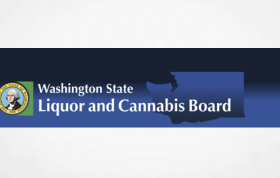

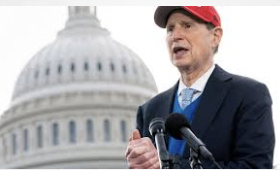
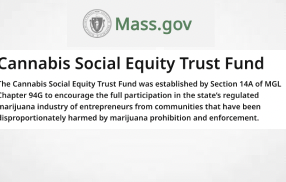
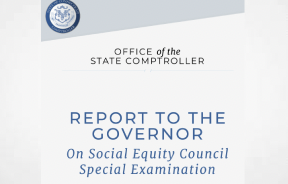

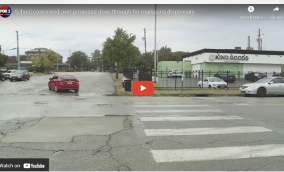










This Bill is the first and best chance to create a single national cannabis market in Australia that will:
create a new sustainable industry with thousands of jobs across the country,
take tens of thousands of people out of the criminal justice system,
for the first time put quality control, strength and labelling requirements on all cannabis products,
take billions of dollars away from organised crime and disempower drug dealers,
put billions of dollars into public revenue for essential services, not least drug rehabilitation, and
allow people the right to choose if they want a beer, or a cannabis drink, on a Friday night after a full-on week at work.
1.2Millions of Australians want this. Millions more people around the world already have this and again, we see the Labor Party and the Coalition just say ‘no’.
1.3This is why people are so sick of politics as usual, controlled by a handful of well‑connected corporate interests, their mates in the media, and politicians with all the imagination of a brick.
1.4If these old, tired parties are so set on stuffing up the climate, giving billionaires tax breaks, driving us to war, ignoring the housing crisis and forcing students into mountains of HECS debt, the least they could do is get on board and legalise cannabis to help us all deal with it.
1.5More seriously, this inquiry shows clearly how, if we want to see evidence‑based and human-centred reforms like this, we will need to break the stranglehold of politics as usual. I’m so very grateful to be part of a political party, the Greens, that is taking on this challenge.
1.6The majority report in this inquiry reasonably fairly covers the evidence we had in the inquiry, although it does not detail the hundreds of individual submissions to the inquiry that, almost unanimously, asked us to vote this into law and to finally legalise cannabis.
1.7The evidence tendered to this inquiry tells us the following:
Cannabis use in Australia is extremely common
The community supports cannabis legalisation
Leaving cannabis illegal causes multiple harms
Making cannabis legal removes multiple harms
1.8The submission from The Penington Institute expresses this, as follows:
Cannabis prohibition doesn’t work: it fails to control supply, leaves the market in the hands of criminals, and costs billions of dollars in enforcement, all while hindering a public health-led approach to managing the health harms that are associated with problematic cannabis use.[1]
1.9In contrast, evidence from the Australian Medical Association, Royal Australian College of General Practitioners, Drug Advisory Council of Australia and the Department of Health and Aged Care focuses on the claimed harms of cannabis use as if these are not presently occurring. Most of these submissions are based on highly contested studies, from conflicting international evidence, that show at worst extremely marginal changes in total cannabis use after legalisation.
1.10This is the fallacy that lies at the heart of the arguments used by those who oppose legalising cannabis. They say that if we have a well-regulated legal market there are a small number of unknowns and one of those is that there might be a small uptick in cannabis use. This small uptick they say is bad, sotherefore we should abandon the project. In doing this, they somehow forget there already exists a massive, unregulated cannabis market where the quality, control and profits are in the hands of organised crime, which wrongfully criminalises millions of Australians and does nothing to reduce harmful use.
1.11If you ignore all the harmful effects of the existing criminal justice approach, pretend cannabis use is not currently occurring on a mass scale, and then focus on the relatively tiny risks from legalising cannabis you arrive at the majority report’s conclusion of opposing this Bill.
1.12This is why the debate has been so skewed and it shows why millions of Australians have stopped listening to politicians who hold this prohibition line. People know it is rubbish. They have seen that legalising cannabis works across the world and they want that to happen here.
1.13The National Drug Strategy 2017–26 (National Drug Strategy)[2]details a national commitment to harm minimisation through the balanced adoption of effective demand, supply and harm reduction strategies. We now have decades of evidence that policing cannabis, criminal sanctions and prison do not impact access to cannabis, do not impact prices or supply. Simply put, the current legal settings for cannabis are not reducing harm to the community.
1.14Legalisation is not only consistent with the National Drug Strategy, it is likely to be considerably more effective than the current policy settings. 360Edgearticulated in detail the harms caused by criminalisation:
The illegal status of recreational cannabis has created a thriving, unregulated black market, incurring substantial health and social costs. The quality, safety and potency of cannabis circulating in the black market is unknown, substantially raising risks to users compared to if cannabis was regulated. There are no barriers preventing the sale of cannabis to minors. Because cannabis is illegal, the public is not properly educated on safe consumption and potential health risks. The stigmatisation associated with using an illegal drug deters people from accessing help for problematic use or health concerns.[3]
1.15Currently, it is individual consumers of cannabis who are most likely to be targeted by the ‘war on drugs’ with reports form the Australian Criminal Intelligence Commission showing that, of the 66 285 cannabis arrests nationally in 2020–2021, more than 90 per cent were of consumers rather than providers. This is people going to court, sometimes to jail, because they have a joint in their pocket.
1.16The opportunity cost here is enormous. Instead of policing resources being used to address issues of real community concern and danger, they are concentrated on those whose only crime is sharing a joint with a mate or having a brownie after a long day.
1.17The need to provide opportunities for First Nations communities after decades of racist policing under the guise of the war on drugs is critically important. ThisBill provides opportunities for fee-free licenses for First Nations communities and submissions from witnesses supported expanding this to expunge past convictions and reparative investment in communities.
1.18Insofar as this inquiry has provided details on how to improve this Bill, those are changes we think are well worth making. We have always been open to the best evidence to make the best Bill possible to make cannabis legal.
1.19The Greens will proceed with this Bill and we will present it to the Parliament for a vote.
1.20I want to thank all those people and organisations who took the time to make submissions to this inquiry and the thousands more who helped us to draft the Bill before we even brought it to Parliament. Collectively, you have helped shape this reform and made it stronger, clearer and better.
1.21We know that with your help we have a Legalising Cannabis Bill that is world’s best practice, that keeps out big tobacco, alcohol and pharmaceutical corporations and will create a well-regulated and democratic market for cannabis. We also know we will make it law.
1.22If we don’t succeed this time, there is an upcoming federal election where people can see which politicians voted for this reform and which politicians instead voted for more jail, more policing and more profits for organised crime.
1.23Then we can all vote for who we want in parliament next time around.
1.24Because it’s well past time to legalise it.
Senator David Shoebridge
Member
Footnotes
[1]Penington Institute, Submission 13, p. 3. Also see: Mr Greg Barns SC, National Criminal Justice Chair, Australian Lawyers Alliance, Committee Hansard, 21 February 2024, p. 3.
[2]Commonwealth of Australia, National Drug Strategy 2017–26, 2017, p. 1, www.health.gov.au/resources/publications/national-drug-strategy-2017-2026?language=en(accessed 30 May 2024).
[3]360Edge, Submission 12, p. [3].